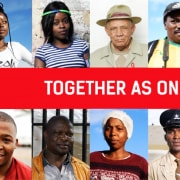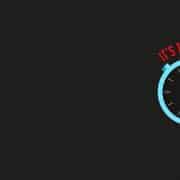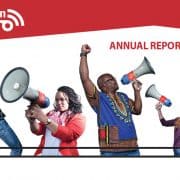|
Getting your Trinity Audio player ready...
|
The 2017 Analysis of Corruption Trends (ACT) Report, released today by Corruption Watch, points to a positive trend of whistleblowing around the country and a greater willingness by the public to join the fight against corruption. The number of corruption complaints received in the first six months of 2017, at 2 744, represents a significant 9.5% increase over the same period last year.
The ACT report indicates an escalating intolerance to corruption across all sectors of society. Since Corruption Watch was launched in January 2012, over 20 000 reports have been received from the public. This growing outrage at the unacceptable levels of corruption in South Africa also relates to its widening impact on the lives of ordinary people, particularly those who rely on publicly provided goods and services.
David Lewis, executive director of Corruption Watch, commented: “Corruption cannot be effectively tackled without an active citizenry willing to blow the whistle. Our reporting data is evidence of a courageous, committed and outraged public. This is a good portend for the future.”
The 2 744 complaints identify five common areas where corruption frequently occurs – in schools, local municipalities, the South African Police Service (SAPS), licensing centres and traffic departments. The highest levels of corruption reported occur in schools, representing 9.9% of the total, followed by corruption in the SAPS, which comes in at 7.6%.
These latter reports have prompted Corruption Watch and the Institute for Security Studies to launch a campaign focusing on the crisis in leadership within the criminal justice system, specifically SAPS and the Directorate of Priority Crime Investigation (the Hawks). The two organisations are currently running a survey encouraging the public to voice their opinions about the skills and attributes they would like to see in the SAPS national commissioner and the head of the Hawks.
The types of corruption most commonly experienced, according to ACT, are bribery, embezzlement of funds, irregularities in procurement, and irregularities in employment. Bribery remains the most prevalent form of abuse of power, at least in relation to complaints received from the public.
The number of reports received tends to correlate almost directly with the population figures in each province. For instance Gauteng, with the highest population in the country, represents 37.3% of the total, whilst the Northern Cape, the most sparsely populated province, only makes up 1.4% of the total number of reports. Corruption Watch has embarked on a series of awareness campaigns aimed at extending its footprint in provinces which are underrepresented in the reporting data.
The three metropolitan municipalities yielding the largest volume of corruption reports are those of Johannesburg, Tshwane, and Cape Town. Of these three, only Tshwane has shown a decrease since 2016.
It is clear from this report that the extent of corruption in South Africa remains alarmingly high. However, the determination of people to expose corruption highlights the important role played by whistleblowers in holding corrupt individuals to account. Members of the public can report corruption on the following channels:
- Report corruption online: corruptionwatch.org.za
- Corruption hotline (toll-free): 0800 023 456
View the full report online or download it.
Link to the police leadership survey.
Contact:
Patience Mkosana: patiencem@corruptionwatch.org.za 072 992 8380
Moira Campbell: moirac@corruptionwatch.org.za 083 995 4711







